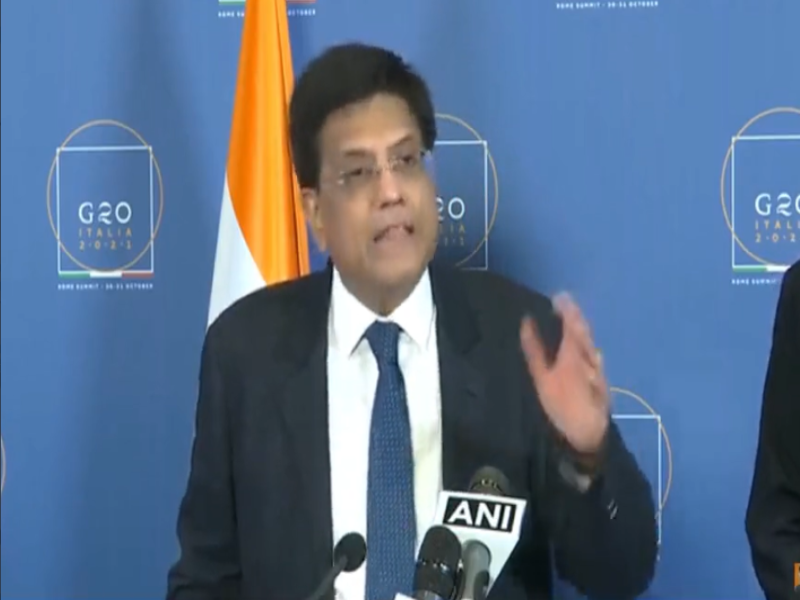 COP26
COP26 Developed nations should now cut emissions, allow emerging economies some carbon space: India
Romae/IBNS: Developed nations that have "enjoyed the fruits of energy" should reach net-zero faster so that emerging economies use some "carbon space" to build growth, India said ahead of the UN Climate Change Conference of the Parties or COP26 to be held in Scotland.
India's representative to the talks Piyush Goyal said the country will "represent the voice of the developing world" while it battles climate change to carve a better planet for future generations.
"Developed nations have enjoyed the fruits of energy and they will need to go for net-zero faster so that developing nations have some carbon space. For now, there is no adequate technology to absorb a large amount of clean energy into grids. There is a need to look at more technology and innovation before we can identify the year (for achieving net-zero)," Goyal said.
"India pushed for safeguarding interests of the developing world. For the first time, G20 has identified sustainable and responsible consumption as critical enablers for achieving climate goals," Goyal added.
Under the "Support to vulnerable countries" head of the "Rome Declaration" released Sunday, the developed nations of the G20 will work towards a combined $100 billion fund to help developing economies meet their clean energy targets.
At the opening speech of the COP26, summit president Alok Sharma said the climate negotiations are the "last, best hope" to keep the goal of limiting global warming to 1.5 degree Celsius alive.
"We postponed COP26 by a year. But during that year, climate change did not take time off...And we know that the window to keep 1.5 degrees within reach is closing," he said.
"We know that our shared planet is changing for the worse. And we can only address that together, through this international system...And if we act now, and we act together, we can protect our precious planet," he added.
The Glasgow gathering will run to November 12.
COP26 draws its central goal from the landmark 2015 Paris Agreement, which witnessed countries agree to limit global warming at "well below" 2 degree Celsius above pre-industrial levels, and 1.5 degree Celsius if possible.
In August a "code red" report by the world's top climate science body warned that Earth's average temperature will hit the 1.5 degree Celsius threshold around 2030, ten years before than projected only three years ago.
Support Our Journalism
We cannot do without you.. your contribution supports unbiased journalism
IBNS is not driven by any ism- not wokeism, not racism, not skewed secularism, not hyper right-wing or left liberal ideals, nor by any hardline religious beliefs or hyper nationalism. We want to serve you good old objective news, as they are. We do not judge or preach. We let people decide for themselves. We only try to present factual and well-sourced news.







